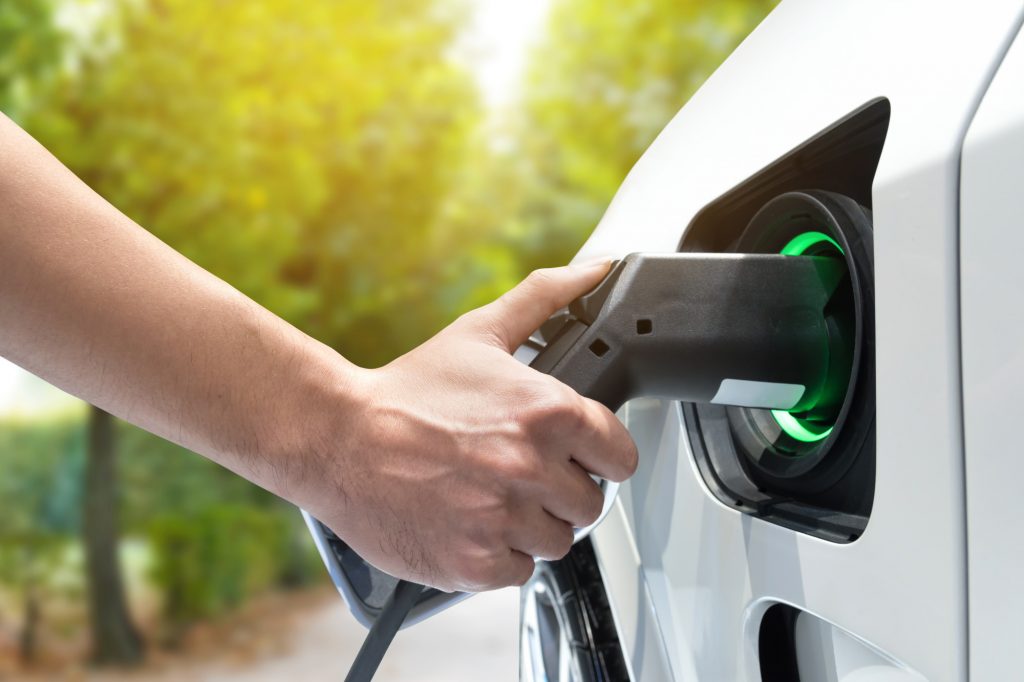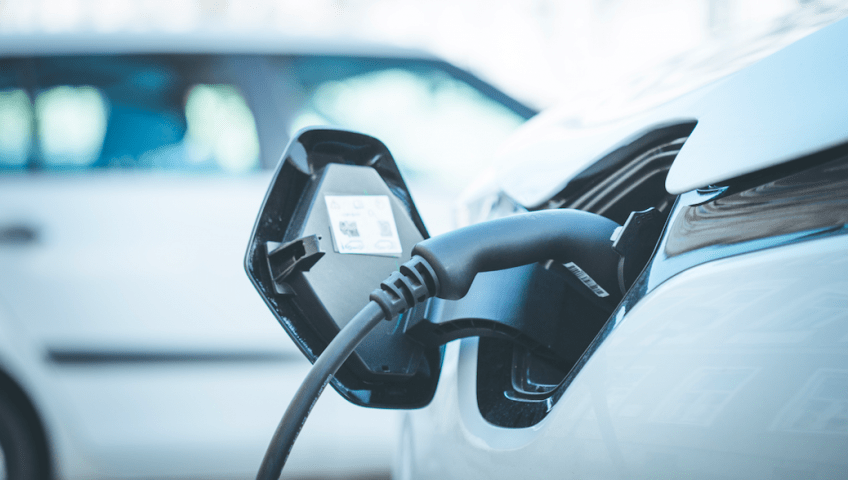In 2021, EV sales in the U.S. hit 608,000, nearly doubling what it was in 2020! As you can see, more and more people are choosing to go electric every day, but there are still a lot of skeptics due to the need for charging stations. Some people worry charging stations aren’t widespread enough to get them from point A to point B in their journey. However, there are currently over 109,307 charging ports across the United States, and that number keeps growing! To get your motor running, we’re going to share everything you need to know about EV charging levels and the requirements for installing a charging station. Who knows, maybe we’ll convince you to go electric along the way.

Level 1 Charging
While Level 1 is the most accessible, since it only requires a standard 120-volt outlet, it’s the slowest way to charge your electric car. It only charges a 4-5 mile range per hour, meaning that if you’ve driven 75 miles, it will take about 15 hours to recharge your car. Given the inefficiency for people on the go, it is only for at-home use.
Level 2 Charging
A Level 2 charging station is commonly seen in commercial, office, or residential parking areas. This level of charging requires 240 volts and a special installation by an electrical contractor since the voltage is higher than a standard outlet. You will also need the help of an electrical contractor to install this level of charging at home, to ensure the necessary wiring is put in place.
This is a much faster level of charging and varies depending on the power output and actual vehicle. The charger provides between 20-30 miles of range per hour. That means that the same 75-mile range that took 15 hours at level 1 will fully charge in about three hours at level 2.
Level 3 Charging
Level 3 charging requires a direct current (DC) and is only available at public charging stations. Dealerships may also install this charging level to be able to show off the electric vehicles on their lot.
The charging speed is 75-1,200 miles per hour. The speed is much higher because the vehicle does not need to convert the AC power that comes from a Level 1 or Level 2 charger into the DC power the battery requires. That means your 75 miles that took 15 hours to charge at Level 1 will only take about one minute at a Level 3 station!

Minimum EV Charging Stations Requirements
Whether you’re a business looking to offer charging stations, or a homeowner planning to purchase an environmentally friendly car, you need to know the electric car charging installation options available to you. It is important to work with a professional electrical contractor like ROS Electric to determine whether your location meets the requirements necessary for EV charger installation.
To meet commercial infrastructure requirements there must be:
- Minimum square footage of 300-500 sq. feet, which is room for about 2-3 cars to park
- A minimum of one charging kiosk that contains multiple charging points
- A transformer that contains all substation equipment including; 33/11 KV cables, circuit breakers, and plug-in nozzles.
If you are looking to install at home, your electrical contractor may need to obtain a permit, but know there are many benefits in doing so such as convenience, maintaining battery health, and increasing the value of your property!
Again, having the work done by a licensed electrical contractor is the best way to ensure your charger installation is correct and meets all code requirements.
Key Takeaways:
- Level 1 is the most accessible, but it’s the slowest way to charge your electric car.
- Level 2 charging stations are commonly seen in commercial, office, or residential parking areas.
- Level 3 charging requires a direct current (DC) and is only available at public charging stations.
Get Prepped for Electric Vehicles
When preparing your home or business for electric vehicles, contact ROS Electric LLC to handle your installation, upgrade, or maintenance needs. Our licensed technicians can handle all your electrical contracting needs, including building automation and controls, fire, security and video access control, and data and telecommunication. Call us at 201-796-2923 today for a quote on your electrical contractor needs!


Write a Comment